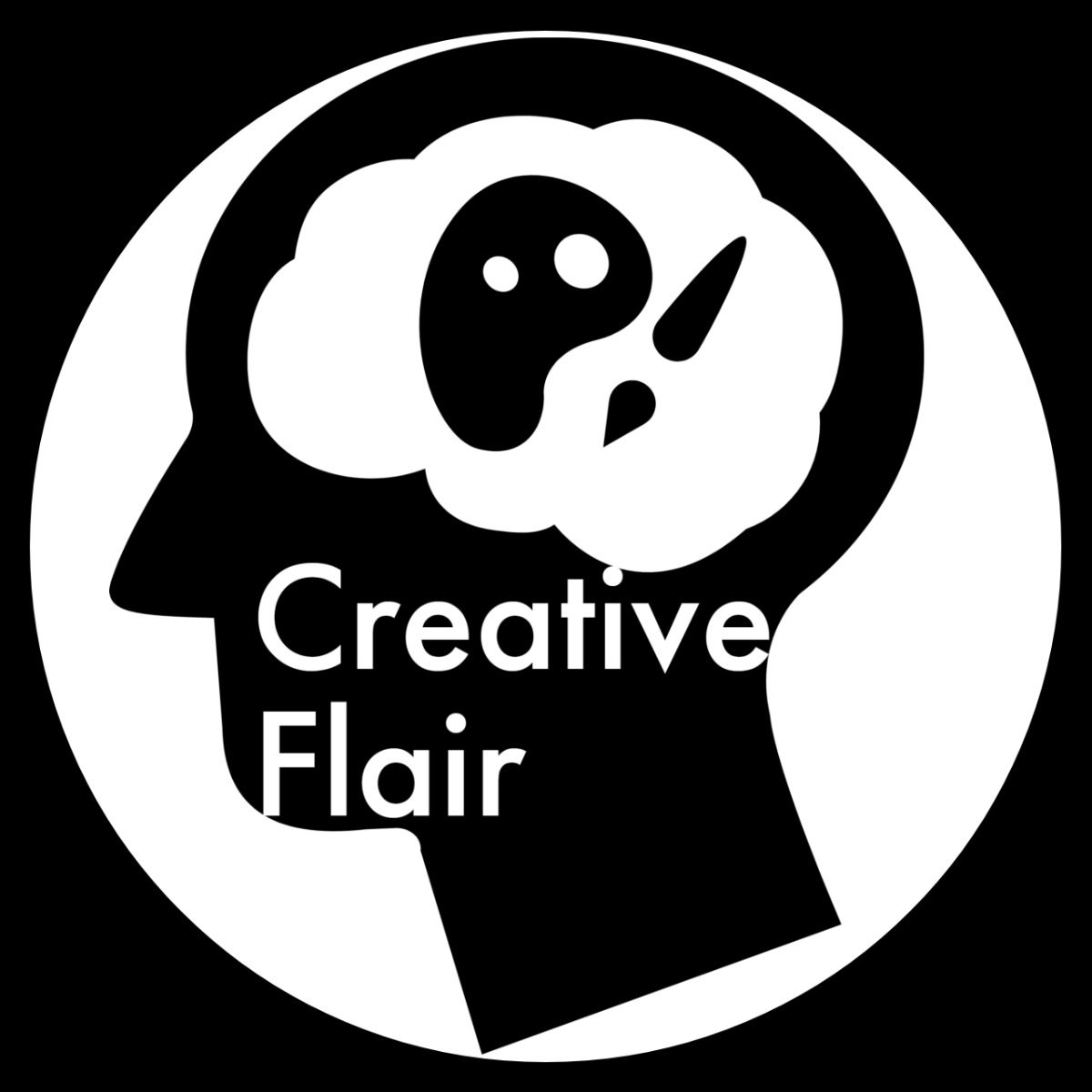As artists, we are ‘supposed’ to be creative people, but not all of us are just naturally creative people. So if you’re searching for how to be more creative, then this is the right blog post for you.
Let’s start this off with:
1. Begin to feel, rather than think.
When you’re stuck in your mind overthinking a concept, it’s very easy to destroy it by obsessing over the ifs and buts of the concept.
While thinking is crucial for investigating a concept, seeing it in perspective, and coming to the best conclusion for how to communicate it, listening to your heart and intuition is just as important, if not more so.
Emotion has a much stronger impact on humans than reasoning.
This is true for both you as an artist and your audience as watchers and admirers of your work.
Listening to your heart and allowing your emotions to lead you may result in a better end product than you had anticipated.
When you’ve completed all of the preparations for an effort, there’s a school of thought that states if you set it away for a bit, your subconscious will continue to work on it for you, so when you come back to it, you’ll have better ideas and be able to finish it with ease.
So just relax about the work and don’t fret; it will happen.
2. Tell a narrative
A good narrative may elicit a range of feelings in us, including wrath, terror, laughter, love, and pride.
We enjoy tales because they entertain us and provide us with knowledge.
A skilled storyteller makes rapid progress in their chosen field. A politician does not ascend swiftly to the top because of the policies and acts he takes; rather, he rises quickly because of the stories he tells in his speeches, and by manipulating his voters’ emotions.
Perhaps that is not the very best of examples, but it is easily recognised.
3. Get rid of cynicism
Cynicism may save you from being naive or putting up with things you shouldn’t, but it’s useless when it comes to the creative process.
Consider your concept as a single dot. When fresh ideas for your project pop into your brain, whether or not they’ll be used, that dot starts to expand; you start to innovate.
Don’t be cynical and don’t worry about limits during this procedure. You don’t want your developing circle of inventiveness to have jagged edges or holes in it.
A cynic, according to H.L Menken, is “a man who, when smelling flowers, looks around for a coffin.”
Yes, you will discover that some of your ideas will work well and some will not, but think of it as an organisation – don’t pass judgement on the ideas you leave behind. Even if they didn’t work, they aided in the development of your ultimate concept.
4. Extend your area of influence beyond what you’re used to.
We are frequently engrossed in our own worlds and fail to observe or consider other parts of life that are not directly related to our own interests. Observe your immediate surroundings as well as the rest of the globe.
Look attentively at the different worlds you are being intellectually and emotionally exposed to the next time you are wandering through a gallery or seeing some other event or piece of creation.
Experiment with things that aren’t in your typical realm of influence. Continue to learn about subjects you’re unfamiliar with in order to broaden your horizons and develop a comprehensive worldview.
Keeping up with what’s going on in the world connects us to a variety of ideas and the people that produce or develop from them. This will not only help you to be more creative, but also help you in creative ideas for contemporary art.
5. Think about it.
Do you deliberately or unintentionally spend time each day to daydream or reflect?
Our view on life is shaped by our guiding ideas and ideologies.
These ideas and concepts can assist us in answering questions about our happiness and what motivates us.
Gain efforts to fill in the gaps and assist your beliefs or ideologies take shape if they are unformed or missing. It’s possible that you’ll have epiphanies while creating, and a new perspective will emerge as a result.
Assessing the worth of what we’ve done or are doing now allows us to see how we, or our works, may assist ourselves, others, and the planet. It is critical that we take time out of our fast-paced lives to consider the worth of our ideas and products.
6. Refresh your knowledge
Maybe you’ve been weighed down by day-to-day living for a few months, years, or decades and haven’t taken up the instruments of creativity in a long time, especially with the lockdown.
When this happens, we may be afraid to create again, believing that we just do not have what we once did and that starting over is pointless.
Don’t allow such a mindset to prevent you from creating. Return to it and rehearse.
It’s true what they say: practise makes perfect. Many people consider Van Gogh’s A Starry Night to be beautiful, despite the fact that he left pieces of canvas visible.
Today’s high school art instructors would throw a fit if one of their pupils drew anything like that, yet it’s one of the most well-known photos in history.
Perfection is a lovely depiction of what made the artist’s heart skip a beat with passion.
Learn something new while you’re brushing up on abilities you already have or formerly had.
Step out of your comfort zone and try something new. If you’ve always sculpted ballerinas out of clay, try something new like joining a sand sculpture competition on the beach. Experiment with the chords and beats utilised in rock music if you learnt classical piano as a youngster.
7. Whenever possible, use your hands.
Have you heard of the term “body memory”? It’s the phenomenon where you turn toward home when driving without even thinking about it, or how you can be lost in contemplation while doing boring activities yet still complete them flawlessly.
Using your hands to perform tasks has another effect on your brain.
It’s been proven that writing words on paper using a pen or pencil tricks your brain into thinking you’ve uttered them out to someone.
Street art is known for its wit, satire, and creativity.
Therapists utilise this mental technique to help patients cope with their own difficulties with others by drafting letters that they will never send. The mind experiences the same relief as if the words were delivered directly to the other person.
If you use your hands to perform familiar or new things, both of these unusual mental anomalies may be exploited to make you more creative. When you’re doodling or writing in your diary, try something new every time. You’re working on your existing body memory while simultaneously developing new ones.
To convey your inner ideas and feelings, utilise doodling, writing, or any other hand-based art.
This doesn’t have to be for show; it may simply be for you, but you’ll be amazed at how much joy you’ll receive from seeing your ideas come to life.
8. Work together
Collaborating on a project with another artist will broaden your creative horizons.
Sharing ideas, techniques, and materials will allow you to work in new ways, and each of your thoughts will inspire amazing ideas in the brains of others around you.
You may build a fantastic storey by combining your life experiences, expertise, and abilities.
9. Maintain an optimistic attitude.
Don’t be swayed by your ego.
You might be hampered in two ways by your own self-perception. Either your ego tells you that you’re not good enough, preventing you from developing new skills, or your ego tells you that you’re the greatest, preventing you from developing new skills.
In any case, don’t allow it have power over you. Maintain a good attitude toward the creative process, but don’t overdo it.
10. Maintain a straightforward approach.
Complexity has the potential to undermine the core of your thoughts.
Assume a florist is putting together a bouquet of roses. Consider what happens if she utilises 12 different rose hues and arranges them in a vase with a multicoloured geometric design.
It’s excessive.
Don’t overthink it; trust the idea to shape itself with your aid.
Extending your horizons will motivate you to embrace life and live it to the fullest. These 10 actions will not only improve what you produce, but they will also assist you in living a life that is vibrant and inspiring.
Recommend0 recommendationsPublished in Art Tips, How To


Responses